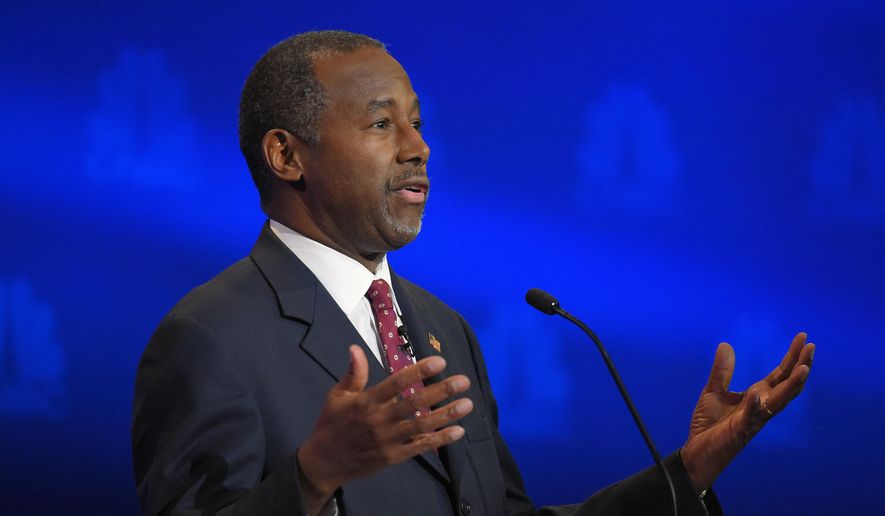Republican presidential candidates are moving past just criticizing Wednesday’s widely panned CNBC debate and are coming up with their own ideas to make debates fairer for the candidates involved.
Republicans took particular fault with CNBC’s debate moderators, saying they asked unfair questions. One of the most memorable moments of the night was a fight between Texas Sen. Ted Cruz berating moderator Carl Quintanilla and the “liberal media” for treating Republican candidates badly and mischaracterizing them and their intentions.
Since then, the Republican National Convention has pulled NBC’s sponsorship of a planned debate because of CNBC’s actions. But that was after the candidates themselves bashed both the networks and the establishment for trying to “narrow the field” and decide who the candidate is, instead of letting the election process work its course.
Retired neurosurgeon Ben Carson, speaking Sunday on ABC’s “This Week,” said that speaking times were simply too short to get across any substantial ideas to the electorate.
“I would like to see us be able to have a substantial opening statement, a least a minute. A substantial closing statement, at least a minute,” he said. “And I would like to see tighter guidelines in terms of people, when they respond to questions. You know, some people just pretty much ignore what the time constraints are. Others are very careful to stay within them. And I think that creates inequality. So we need to just tighten it up a little bit and do it more like a professional type of debate.”
Ohio Gov. John Kasich, speaking on CNN’s “State of the Union,” said the debate format was made for the candidates to attack each other and not address differences on the issues.
“I will criticize programs and plans that I think are goofy, which I did in the last debate, things like shipping 10 or 11 million people out of this country and some fantasy that we’re going to get the Mexican government to pay for the wall, or abolishing Medicare or Medicaid or making it a voluntary program,” he said. “I mean, I don’t want to attack people.”
South Carolina Sen. Lindsey Graham has been on the undercard or “kiddie table” for the past three debates. He said one way to be fairer to all candidates so early in the election process is to have all heard equally.
“This debate structure is not leading to the best candidate coming out of the debates. I would like smaller groups, all of us be heard equally, ask better questions,” he said on “Fox News Sunday.” “If we continue with this process, I think it’s going to hurt our chances for winning in 2016.”
Former Hewlett-Packard CEO Carly Fiorina echoed Mr. Cruz’s comments during the debate in an interview on ABC’s “This Week.”
“This is a debate series for Republican primary voters. And when you don’t have a single conservative moderator, when the moderation earns boos from the audience, I mean — I’ve never seen that before, where an audience booed the moderation,” she said.
“I hope it was a signal, quite honestly, to the liberal media that they need to be more deliberate, more balanced and more respectful to the Republican primary voters and their candidates.”
Mr. Cruz, for his part, has been riding his debate comments through to the GOP’s Growth and Opportunity Party forum last week in Iowa.
“Let me lay out a radical proposition,” he told a cheering crowd. “How about if we say, from now on, if you have never voted in a Republican primary in your life, you don’t get to moderate a Republican primary debate? … Could you imagine a debate moderated by Sean Hannity and Rush Limbaugh and Mark Levin?”
• Anjali Shastry can be reached at ashastry@washingtontimes.com.




Please read our comment policy before commenting.